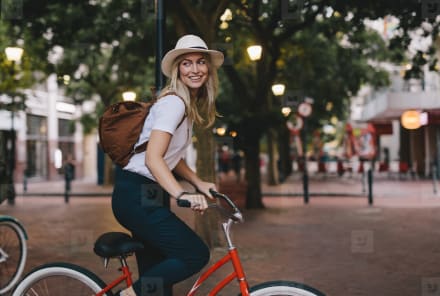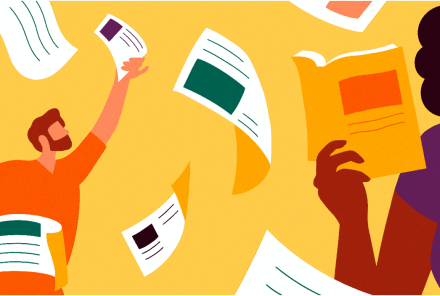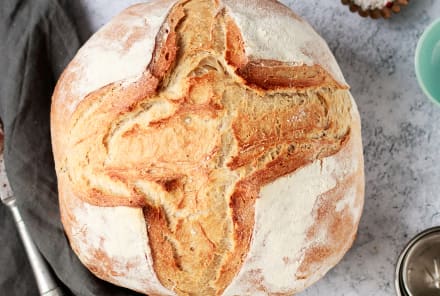Advertisement
How Whole30's Melissa Hartwig Overcame Debt & A Shopping Addiction To Launch A Wellness Empire


With an estimated 67 percent of Americans at least a little anxious about paying the bills, and 58 percent worried they won’t have enough money for retirement, it’s becoming increasingly clear that being financially well is an integral part of overall wellness. Of course, money management isn’t one-size-fits-all, so we’re talking to people from all walks of life to find out how they achieved a healthy relationship with their finances. We hope it empowers you to live a life Well Spent.
"My evolution financially has very much paralleled my evolution with health and wellness," explains Melissa Hartwig, the woman behind the wildly successful Whole30 Program. Having lived paycheck to paycheck for years, Hartwig knows how dicey it can get when this part of the wellness equation is out of whack. And now, she sees tending to finances as another form of self-care—just as important as eating clean or going to the gym.
In this week's Well Spent, Hartwig walks us through how the lows—years spent in debt, thanks to a shopping addiction—helped her solidify the smart financial strategies she leans on today: Say no to short-term pleasures for the sake of long-term gain, keep everything centralized, and identify the free things that bring you the most joy. She also gives her top tips for doing Whole30 on a budget, shares how she's introducing her young son to finances, and explains why you should never, ever test drive a Jetta GTX you can't afford. Wherever you are on the financial journey, we bet you can get something from her very real advice.
What does financial well-being look like for you?
It means that I'm not a slave to my lifestyle or my possessions, that I haven't bought more than I can comfortably afford, and that I don't feel stressed about the lifestyle that I'm living. It also means sacrificing some short-term pleasure for the long-term goal.
Tell me more about what that looks like: forgoing desires in the short-term for the sake of long-term gain.
For me, travel is a big expenditure. Last year, I went to Sweden and Norway, which required stocking a lot of vacation time and saving money. So it meant saying "no" to the two or three little weekend getaways that came up beforehand—because this big Norway/Sweden trip was going to be so epic, and I was so looking forward to it.
I'd say to myself, "Well, I know this is only a short weekend trip to Vegas, but it's going to cost money." So I decided, "What can I do instead? I'm going to do a staycation this weekend. I'm going to stay home, find beautiful hikes and lakes in the area, and enjoy myself without spending a lot."
What has your financial journey looked like?
Oh boy. When I had my nine-to-five job before I launched Whole30, to say I was living paycheck to paycheck is the understatement of the century.
I was adding to my debt, and it was incredibly stressful, but I couldn’t stop shopping.
My parents never really talked to me about money—it was the one subject that we just didn't talk about. So I got to college, applied for a bunch of credit cards not understanding anything about my credit rating or how important it was, and racked up a bunch of debt. At the time, I was shopping to fill my feelings, to fill holes emotionally. I was making money at my job but literally going down to the last $10 in my bank account every month. I wasn't saving anything. I was adding to my debt, and it was incredibly stressful, but I couldn't stop shopping. I think anyone who's stuck in this cycle of almost addiction, compulsion, guilt, shame, and stress can understand.
Looking back, I wish I had been brave enough to share this with somebody at the time. It's so freeing to finally say, "I'm struggling financially right now. Here's what's going on." Just talking to someone—whether it's a trusted friend, family member, or counselor—can bring that out into the light and erase the shame around it—because it's not shameful.
What were some of your financial vices during this time?
Back when I was living New Hampshire, I needed a new car. I had a very clear budget because I wanted to pay cash for it. (I didn't want to have car payments because I couldn't really afford them.) So I went to the dealership, told them my budget, and looked at a couple of cars that I could afford. But then, one car salesman of course said, "Let me just show you one other thing." It was this black Volkswagen Jetta GTX, Turbo edition. It was sexy, had a bumpin' system, and it was a stick shift. It was like $3,000 more than my budget, which I think was $5,000. But I decided that if I bought that car, it would make me cooler, make me have more fun, and make me more confident. So I bought it. But then I ended up having car payments, and it sunk me even more in debt.
Every time I got in that car, it reminded me that I had made a really bad decision. As much as I liked the car, it just made me think, "I'm so irresponsible." My next car was a very, very sensible Subaru that I could afford, and I ran it into the ground until it had 170,000 miles because I had learned my lesson.
It was a cool GTX though.
What did the process of paying off debt look like? How did you take those initial steps to get out of it?
When I started Whole30, luckily I had a retention bonus from my last company that I used to get it off the ground. Once that started taking off, two things happened: One, I started buckling down with therapy to figure out why I was doing what I was doing, and that helped. Two, I started getting really serious about paying off my debt and living more simply.
But it took me years to rebuild my credit rating. I could not get a car loan probably for like five or six years to save my life. I ended up having to charge a few things off. I worked with my creditors. It was in collections at this point. They would say, "What would this mean if you could pay 15 percent?" I knew that was bad for my credit rating, but it was better to pay it off and have it be done.
I tackled the small things first: I consolidated my student loans to get a better deal. I also got rid of all of my credit cards except for two. I canceled all of my store cards, all my specialty cards. I set up an auto payment to pay it off entirely at the end of every month so I didn't overextend. And then, every once in a while, when I felt like I was brave, I would dive into something big, like the student loans, and figure out what I could do to make them a little bit more manageable.
I no longer consider treating myself to something I can’t afford self-care. That is not taking good care of myself.
Now, I think financial health is just another piece of the big picture of self-care practice. I no longer consider treating myself to something I can't afford self-care. That is not taking good care of myself.
How has your financial philosophy changed since you had your son?
Now that I have a son and I'm in a better, more stable financial position, one of the things I've had to conscientiously do is to say no on purpose—not because I can't afford the $5 treat but because he needs to learn the value of money. One of the things I'm doing differently than my parents did, for better or for worse, is I'm talking to him about money. He has an allowance, and if he wants something, he can choose whether he wants to spend his own money on it or save up for it.
Spending money on him where I think it matters is really important. Food is a big expenditure for us. I spend a lot of my personal monthly budget on really good, high-quality food because that's obviously a priority for me.
What tips do you have for people who are doing Whole30 on a tight budget?
The first thing you have to do is meal plan. If you don't have a solid meal plan, you'll go into the grocery store, buy things that you're not going to use, and then they're going to spoil because they're perishable. You're going to be tempted to do those Whole30-compliant impulse buys, like, "Well, I might use this dressing somewhere down the line," or "I might use this whatever because it looks good as a snack." Meal-prepping will cut down on impulse spending and ensure you'll actually use what you purchase so nothing will go to waste.
Also, go to two or three stores: Go to the health food store for the stuff you can only get there, and go to your regular grocery store for everything else. It's two trips, but if you can figure out how to make it work, it can save you significant money. It just requires a little bit more planning up front.
Are there any wellness splurges that you don't think are worth the money?
Anything that you're not going to use is not worth it. I don't care if float tanks are all the rage, or you love the idea of having a rower at home—if you're not going to actually use it, just have a "come to Jesus" with yourself and save the money. These aspirational purchases are just going to hover over you and make you feel guilty, and you're going to end up spending money that could be better used on something else.
Luckily, these days there are fantastic ways to test things out before you actually buy them. See if the yoga studio near you has a free trial week, rent camping or backpacking equipment for a night, etc.
Do you have any tips for practicing self-care on a budget?
I do a lot of self-care practices right now that are totally free! I'll take 20 minutes before I go to bed, put my phone away, and read a library book. I'll take my lunch outside, sit on the back porch, and just get a little sunshine in the middle of the day while I eat. I can grab a bottle of water and a backpack and go for a hike on a Saturday, and that's totally free.
The other example I give all the time is buying yourself flowers. I'll go to my local grocery store, skip my Starbucks coffee for the day, and spend $5 on a really pretty bouquet of flowers. They make my house feel so warm and welcoming, and they make me so happy.
I think seeking those things that bring you pleasure and are financially responsible can really build your self-confidence and your self-efficacy because you're taking care of yourself on all fronts.
It can be incredibly empowering to take something that is so scary and overwhelming and drag it into the light.
Is there a specific financial habit that you've developed over the years that you're really proud of?
Using one credit card for everything and automatically paying it off at the end of every single month. Oh my goodness, the day that I added up my Amazon Prime bill for the month was a really big eye-opener. I'm forcing myself to take a better look—checking out what I'm spending, what I'm spending it on, and what I need to do for the next month.
When I was having issues with debt, it was because everything was all over the place and I had a lot of different cards. I would kind of look at the bill, pay the minimum as fast as I could, and then throw it in the trash because I didn't want to see it—and that's just the worse things you can do.
It can be incredibly empowering to take something that is so scary and overwhelming and drag it into the light. It will make you feel like you are finally back in control.
What is the best money you ever spent?
The new pair of On Running hiking shoes, which I haven't taken off all season. They were probably $80, but when I pull them out all dirty and dusty, they represent one of my favorite self-care practices, one of my favorite connections to my grounding and spirituality. Every time I look at them, I have so much happiness that I bought them, but it wasn't something that broke my bank financially. That's the key. It didn't stress me out to buy them: It was bang for my buck, and I am so pleased because they are so functional and they suit my lifestyle so well.
This interview has been edited and condensed.
Watch Next
Enjoy some of our favorite clips from classes
Enjoy some of our favorite clips from classes
What Is Meditation?
Mindfulness/Spirituality | Light Watkins
Box Breathing
Mindfulness/Spirituality | Gwen Dittmar
What Breathwork Can Address
Mindfulness/Spirituality | Gwen Dittmar
The 8 Limbs of Yoga - What is Asana?
Yoga | Caley Alyssa
Two Standing Postures to Open Up Tight Hips
Yoga | Caley Alyssa
How Plants Can Optimize Athletic Performance
Nutrition | Rich Roll
What to Eat Before a Workout
Nutrition | Rich Roll
How Ayurveda Helps Us Navigate Modern Life
Nutrition | Sahara Rose
Messages About Love & Relationships
Love & Relationships | Esther Perel
Love Languages
Love & Relationships | Esther Perel













